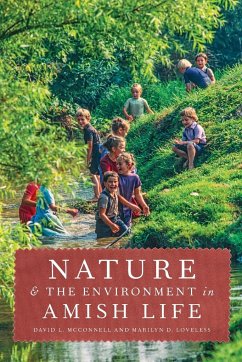The pastoral image of Amish communities living simply and in touch with the land strikes a deep chord with many Americans. Environmentalists have lauded the Amish as iconic models for a way of life that is local, self-sufficient, and in harmony with nature. But the Amish themselves do not always embrace their ecological reputation, and critics have long questioned the portrayal of the Amish as models of environmental stewardship. In Nature and the Environment in Amish Life, David L. McConnell and Marilyn D. Loveless examine how this prevailing notion of the environmentally conscious Amish fits with the changing realities of their lives. Drawing on 150 interviews conducted over the course of 7 years, as well as a survey of household resource use among Amish and non-Amish people, they explore how the Amish understand nature in their daily lives and how their actions impact the natural world. Arguing that there is considerable diversity in Amish engagements with nature at home, at school, at work, and outdoors, McConnell and Loveless show how the Amish response to regional and global environmental issues, such as watershed pollution and climate change, reveals their deep skepticism of environmentalists. They also demonstrate that Amish households are not uniformly lower in resource use compared to their rural, non-Amish neighbors, though aspects of their home economy are relatively self-sufficient. The first comprehensive study of Amish understandings of the natural world, this compelling book complicates the image of the Amish and provides a more realistic understanding of the Amish relationship with the environment.
Bitte wählen Sie Ihr Anliegen aus.
Rechnungen
Retourenschein anfordern
Bestellstatus
Storno








